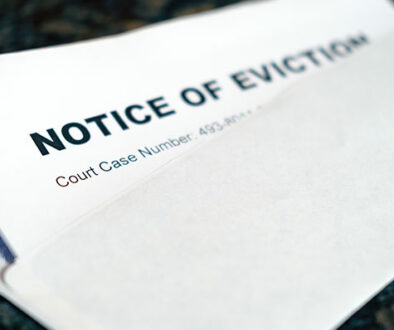Eviction Dilemmas: When and How to Navigate the Complex Process Legally
Evicting a tenant is one of the most challenging and complex tasks a landlord may face. Balancing legal obligations with the need to protect one’s property investment requires a strategic and cautious approach. In this comprehensive guide, we will explore the dilemmas surrounding eviction, examining when it becomes a necessary course of action and how landlords can navigate this intricate process within the bounds of the law.
- Understanding the Grounds for Eviction:
Eviction should only be considered when there are valid grounds as defined by local landlord-tenant laws. Common reasons include non-payment of rent, lease violations, property damage, or illegal activities. Familiarize yourself with the specific grounds applicable to your jurisdiction.
- Communication as a First Step:
Before jumping into the eviction process, open communication with the tenant is crucial. Address concerns, discuss the issues at hand, and explore potential resolutions. In some cases, issues can be resolved through communication, saving both parties from the complexities of eviction.
- Thorough Documentation:
If communication fails to resolve the issues, meticulous documentation becomes the landlord’s best ally. Keep a record of lease violations, written warnings, communication with the tenant, and any evidence of non-compliance. This documentation will serve as crucial evidence in case legal action becomes necessary.
- Serve Legal Notices:
Most jurisdictions require landlords to serve legal notices before initiating eviction proceedings. Common notices include pay or quit notices for unpaid rent and cure or quit notices for lease violations. Ensure these notices comply with local laws and are delivered in the appropriate manner.
- Legal Advice and Consultation:
Before moving forward with eviction, seek legal advice. Consultation with a qualified attorney can provide insight into the specific laws governing eviction in your area. An attorney can also guide you on the proper legal procedures and help draft the necessary documents.
- Filing for Eviction:
If the tenant remains non-compliant after the legal notices, the next step is filing for eviction with the appropriate court. Ensure all documentation is in order and that you adhere to the legal process meticulously. Timeliness and accuracy are paramount during this stage.
- Attend the Court Hearing:
Prepare for the court hearing by organizing all relevant documents and evidence. Clearly present your case and be ready to adhere to the legal process. Some jurisdictions offer mediation services at this stage to resolve disputes before eviction becomes necessary.
- Enforcing the Eviction Order:
If the court rules in your favor, you will receive an eviction order. Work with local law enforcement to enforce the eviction process. Follow all legal protocols to avoid any complications or disputes during the actual eviction.
- The Challenge of Time and Cost in Traditional Eviction Methods:
Going through the official channels of expensive lawyers and courts can be a time-consuming and costly endeavor. Legal proceedings can stretch over months, even years, causing additional financial strain on landlords.
- Failure to Launch: A Swift and Efficient Alternative:
Recognizing the challenges posed by traditional eviction methods, Failure To Launch offers landlords a unique and efficient alternative. Our eviction services prioritize speed and affordability, aiming to resolve eviction matters within a week or two, minimizing the financial and emotional burden on landlords.
Eviction becomes a necessary recourse when tenants consistently fail to meet their rent obligations or breach lease agreements. This often challenging and time-consuming procedure involves serving notices, filing court documents and attending hearings. Ultimately, eviction is a means to protect the landlord’s property investment and financial stability while upholding the legal rights and responsibilities of both parties involved.
Eviction can be a complex process that should be approached with care and adherence to the law. While it is a last resort, sometimes it becomes necessary to protect the interests of the landlord. By understanding the legal grounds, communicating effectively, seeking legal advice, and following the proper procedures, landlords can navigate eviction problems while maintaining legal compliance and safeguarding their property investments.
With Failure To Launch, landlords have an expedited and cost-effective solution to efficiently address eviction challenges without the usual prolonged timelines and costs associated with traditional legal channels.
You don’t have to go through expensive courts or eviction lawyers.


